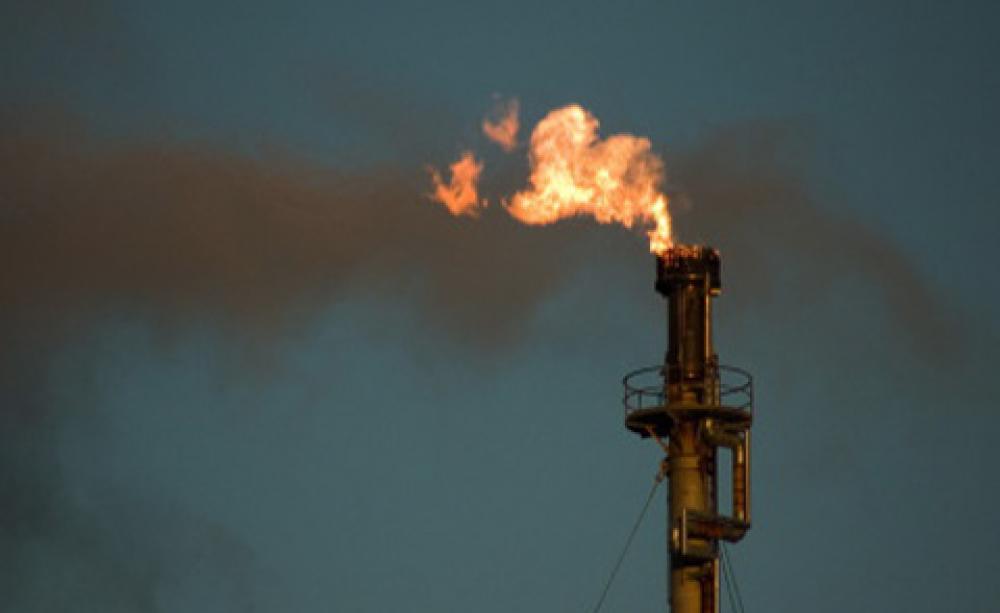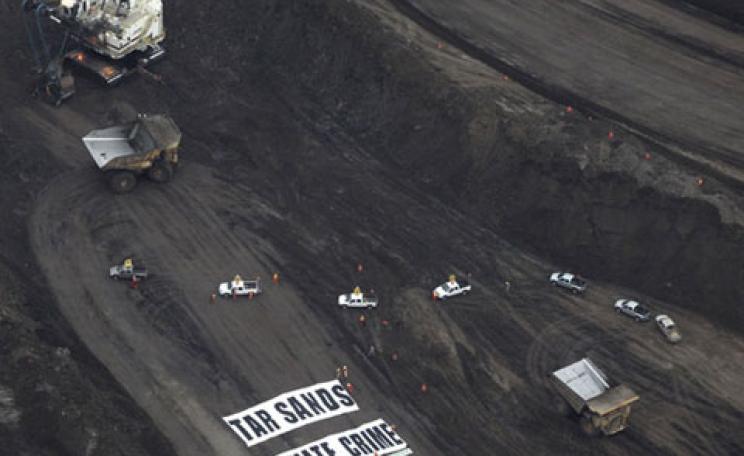By the fruits of their greenwash shall you know them…
Despite the scientific and financial imperative to reduce harmful emissions – and a change at the top – Shell is pressing forward with its polluting agenda, according to a new report.
Published by green organisations including Friends of the Earth (FoE), Shell Guilty and Oil Change International, Shell’s Big Dirty Secret shows Anglo-Dutch oil company to be the most carbon-intensive in the world. Shell is the owner of huge tracts of Canada’s tar sands, a major investor in liquefied natural gas and the largest oil operator in Nigeria.
It also reveals Shell executives continue to approve gas flaring in Nigeria for financial reasons, despite knowing of the environmental and health dangers. A popular protest by Ogoni people led to the execution of activist Ken Saro-Wiwa and eight others in Nigeria in 1995. Accused of collaboration in his death and of human rights abuses, Shell paid out $15.5 million in a settlement to the families in June.
Van der Veer – who steps down this week in favour of new chief executive Peter Voser – was drafted into the board in 1997 to deal with the fallout of the Saro-Wiwa affair. Under his tenure the company has become as notorious for its greenwash as for its polluting ways.
In 2007 it launched its ‘Don’t throw anything away – there is no away’ campaign, while in the same year producing 100 million tonnes of greenhouse gases. In 2008, the Advertising Standards Authority banned a Shell advert that used the word ‘sustainable’ in conjunction with its Canadian tar sands project. Shell came second in this year’s Climate Greenwash Awards.
‘Shell attempts to paint itself as a sustainable company when in reality it is the dirtiest oil producer of all,’ said Paul de Clerck of FoE International. ‘It continues to make huge profits but still argues that it cannot afford to pay for effective carbon dioxide reduction measures. The EU should no longer listen to Shell in talks about tackling climate change.’
Steve Kretzmann of Oil Change International said the company could stop gas flaring in Nigeria for a tenth of its 2008 profits: ‘Peter Voser has the power to spare Nigerians from inhaling deadly toxins, and help curb climate change in one stroke. The question is, will he?’







